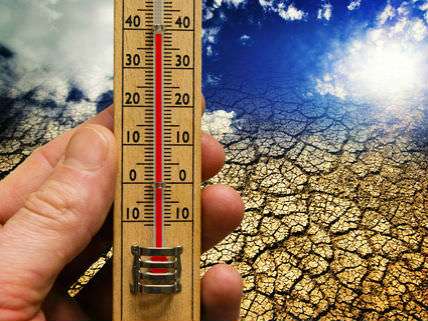Climate Change Does Not Ratify Obama Administration Energy Rationing Policies in State of the Union
President vows that he will press forward with hodgepodge of climate regulations

In his State of the Union message, President Obama asserts
And no challenge – no challenge – poses a greater threat to future generations than climate change.
2014 was the planet's warmest year on record. Now, one year doesn't make a trend, but this does – 14 of the 15 warmest years on record have all fallen in the first 15 years of this century.
Just a data quibble. The president is citing the temperature trend data from NOAA released last week, but other research groups find that while 2014 is warmer than the 20th century average, it is not the warmest year. For example, the Berkeley Earth group reported:
The global'surface temperature average (land andsea) for 2014 was nominally the warmest since the global instrumental record began in 1850; however, within the margin of error, it is tied with 2005 and 2010 and so we can't be certain it set a new record.
It is also well that the president noted that a single year doesn't make trend. Tthe trend for global average temperatures for the past 18 years has been considerably slower than predicted by the vast majority of computer climate models. As I noted earlier this week:
The IPCC's Synthesis Report just released in November notes:
For the period from 1998 to 2012, 111 of the 114 available climate-model simulations show a surface warming trend larger than the observations…. The difference between models and observations may also contain contributions from inadequacies in the solar, volcanic, and aerosol forcings used by the models and, in some models, from an overestimate of the response to increasing greenhouse gas and other anthropogenic forcing (the latter dominated by the effects of aerosols).
Shorter: The climate models could be wrong for all sorts of reasons.
The President continued:
I've heard some folks try to dodge the evidence by saying they're not scientists; that we don't have enough information to act. Well, I'm not a scientist, either. But you know what – I know a lot of really good scientists at NASA, and NOAA, and at our major universities. The best scientists in the world are all telling us that our activities are changing the climate, and if we do not act forcefully, we'll continue to see rising oceans, longer, hotter heat waves, dangerous droughts and floods, and massive disruptions that can trigger greater migration, conflict, and hunger around the globe. The Pentagon says that climate change poses immediate risks to our national security. We should act like it.
But the fact that greenhouse gases emitted by humanity from the burning of fossil fuels contribute to future climate change does not implicate any specific policies; certainly not the expensive hodgepodge of CAFE standards, coal plant emissions cuts, vetoing the Keystone pipeline, and new rules on fracking being implemented by the Obama administration.
The president goes to cite his joint announcement (not agreement) with China in which the U.S. promises to cut its greenhouse emissions 26-28 percent by 2025 while China continues to increase its emissions until 2030. I noted the inconvenient truth about the announcement is that both countries have left themselves plenty of room to repudiate their pledges later. By 2030 China could end up emitting three times more greenhouse gases than the U.S. From my Time column:
Looking at the previously announced energy and climate policies of both the U.S. and China, the new pledges appear to add little to their existing plans to reduce their emissions. The new Obama pledges basically track the reductions that would result from the administration's plan to boost automobile fuel economy standards to 54.5 miles per gallon by 2025 and the Environmental Protection Agency's new scheme to cut by 2030 the carbon dioxide emissions from electric power plants by 30% below their 2005 level. Xi was no doubt aware that a week earlier an analysis of demographic, urbanization, and industrial trends by Chinese Academy of Social Science had predicted that China's emissions peak would occur between 2025 and 2040.
Supporters hope that the joint announcement is the prelude to a "great leap forward" to a broad and binding global climate change agreement at Paris in 2015. Perhaps, but the U.S. and China left themselves plenty of room to step back if their pledges become inconvenient.
And while the president may "hope that, this year, the world will finally reach an agreement to protect the one planet we've got," there are good reasons to believe that the United Nations' Climate Change conference in Paris this coming December will most likely be a fiasco.


Show Comments (26)